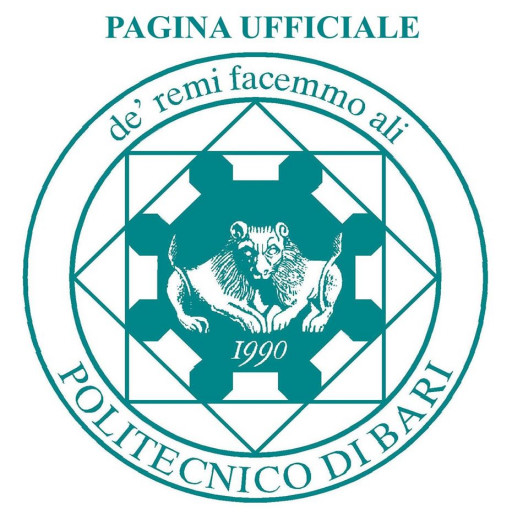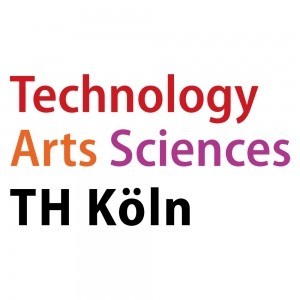Photos of university / #aaltouniversity
The Automation and Electrical Engineering Master's Programme at Aalto University offers a comprehensive education designed to prepare students for advanced careers in the evolving fields of automation, electrical engineering, and intelligent systems. The programme combines rigorous theoretical foundations with practical applications, ensuring graduates are well-equipped to tackle contemporary technological challenges across various industries such as manufacturing, energy, transportation, and information technology. Students will develop a deep understanding of automation systems, control engineering, robotics, embedded systems, power systems, and electrical machines, enabling them to design, analyze, and optimize complex technical solutions. The curriculum emphasizes innovation, sustainability, and automation, fostering skills in system integration, signal processing, renewable energy technologies, and Internet of Things (IoT) applications. Throughout their studies, students have opportunities to engage in cutting-edge research projects, collaborate with industry partners, and participate in practical laboratories and internships that enhance their hands-on experience. The programme also encourages multidisciplinary learning, combining electrical engineering with computer science, automation, and data analytics, to meet the demands of modern technological environments. Graduates of the programme are prepared for professions in system design, development, consulting, and research roles in both the private and public sectors. They gain skills that are highly valued worldwide, including problem-solving, teamwork, innovation, and technical communication. Upon completion, students receive a Master of Science in Technology (MSc) degree, which enhances their career prospects in a competitive global job market and provides a solid foundation for doctoral studies or entrepreneurial pursuits. The programme is delivered in English and is characterized by a dynamic learning environment with state-of-the-art facilities and experienced faculty members committed to student success.
Study Programme
Students can choose from three different majors within the programme
- Electrical Power and Energy Engineering
- Control, Robotics and Autonomous Systems
- Translational Engineering.
Depending on the choice, students can then focus on, for example, Electrical Grids, Electric Motor Drives, Lighting Technology, Control Engineering, Robotics, Automation Systems, Embedded Systems, Imaging and Machine Perception, Microsystems, New Hybrid Carbon Nanomaterials, Biomedical Engineering or Personalised Health Care.
The programme offers a variety of practical projects and workshops to prepare graduates for future careers. They are designed to develop strong team-work and analytical skills to enable graduates to solve complex and ill-defined problems often arising from large and complex systems. The fundamental theoretical, practical and experimental aspects are also included to prepare graduates for possible further studies, especially for a PhD.
The Master's degree (120 ECTS) is composed of studies of the major (55-65 ECTS), elective studies (25-35 ECTS), and the Master's thesis (30 ECTS).
Required prior knowledge
Applicants to the programme must first meet the general eligibility criteria and language requirements common to all Master’s programmes in Science and Technology.
The following background knowledge is required. This knowledge is typically obtained by studying a Bachelor degree at a research university with Electrical Engineering, Automation, Control Engineering or Materials Science as a major subject.
The required background subjects are:
- mathematics (linear algebra, calculus, probability theory and statistics)
- programming skills
- physics and/or chemistry
- project and team work
- technical writing
For applicants whose previous degree is in a subject other than Electrical Engineering, Automation, Control Engineering or Materials Science, it is critical to demonstrate the knowledge in the above areas and the specific major requirements (as described below) in the application.
Students chosen to the programme may be required to complement their earlier degree studies with complementary studies. The admission letter will provide information on any such requirements. The complementary studies cannot be included in the Master's degree but will be required for graduation.
In addition to the general background requirements, each major has specific requirements. The major is selected at the beginning of the studies, and at that point the background requirements listed below are considered. The applicants are asked to indicate in the motivation letter which major they wish to follow. The majors offered have the following specific requirements.
Funding for the Automation and Electrical Engineering master's program at Aalto University is primarily available through a variety of sources designed to support both domestic and international students. Aalto University offers several scholarship options to outstanding applicants, including merit-based scholarships awarded based on academic achievement, which can significantly reduce tuition fees for non-EU/EEA students. These scholarships are competitive and aim to attract highly qualified students from around the world. Additionally, some students may qualify for government-funded financial aid or student grants provided by Finnish authorities, which often depend on residence status, financial situation, and other criteria.
Finnish students and residents of Finland have access to government loan schemes and grants under the Finnish student financial aid system. These funds are administered through the Finnish National Agency for Education (EDUFI) and are intended to cover living expenses, books, and other study-related costs during the degree program. International students are generally advised to secure their funding independently, either through personal savings, family support, or external scholarships, although some may find funding opportunities through private foundations or bilateral agreements.
Aalto University also encourages students to seek part-time employment during their studies to supplement their income, with many students working in related fields or on campus. The university's location in Espoo offers proximity to numerous high-tech companies and industries involved in automation, electrical engineering, and related sectors, providing ample internship and employment opportunities that can help finance students' education and gain practical experience.
The university’s Career Services and International Office provide support in applying for funding, internships, and employment opportunities. Furthermore, Aalto University participates in European Union programs, such as Erasmus+, which may provide mobility grants for students participating in exchange programs or joint degrees. Some students may also explore research assistant positions or project funding within the university’s research groups, which can offer stipends or salary support.
Overall, financing studies at Aalto University’s Automation and Electrical Engineering program involves a combination of scholarships, government aid, personal resources, part-time work, and research opportunities. Prospective students are encouraged to explore all available options and apply early for scholarships or financial aid programs to ensure adequate funding throughout their studies.
Automation and Electrical Engineering at Aalto University offers a comprehensive education in the field of automation technology, electrical engineering, and embedded systems. The programme aims to equip students with the theoretical knowledge and practical skills necessary to design, develop, and manage automation systems, electrical devices, and control solutions in various industries such as manufacturing, energy, telecommunications, and transportation. The curriculum typically covers core subjects such as control engineering, power systems, electrical circuits, embedded systems, robotics, and signal processing, providing a solid foundation for innovative problem solving and technological development. Students also have opportunities to engage in multidisciplinary projects, internships, and collaboration with industry partners, fostering practical experience and professional networking. The programme emphasizes sustainable and energy-efficient solutions, digitalization, and advanced automation technologies, preparing graduates for evolving industry demands. Graduates of the programme are well-equipped for careers as automation engineers, control systems specialists, electrical engineers, or R&D professionals. The programme is delivered at Aalto University’s School of Electrical Engineering, known for its cutting-edge research facilities and close ties to industry. The degree often leads to opportunities for further studies, research positions, or international mobility through exchange programmes. Students also benefit from a vibrant academic community that encourages innovation, entrepreneurship, and lifelong learning. The programme’s specializations allow students to tailor their studies towards particular interests within automation or electrical engineering, such as embedded systems, power electronics, or automation solutions for smart industries. Overall, Automation and Electrical Engineering at Aalto University offers a rigorous and versatile education that responds to the technological challenges of modern society, preparing students to become future leaders in engineering and technology sectors.








